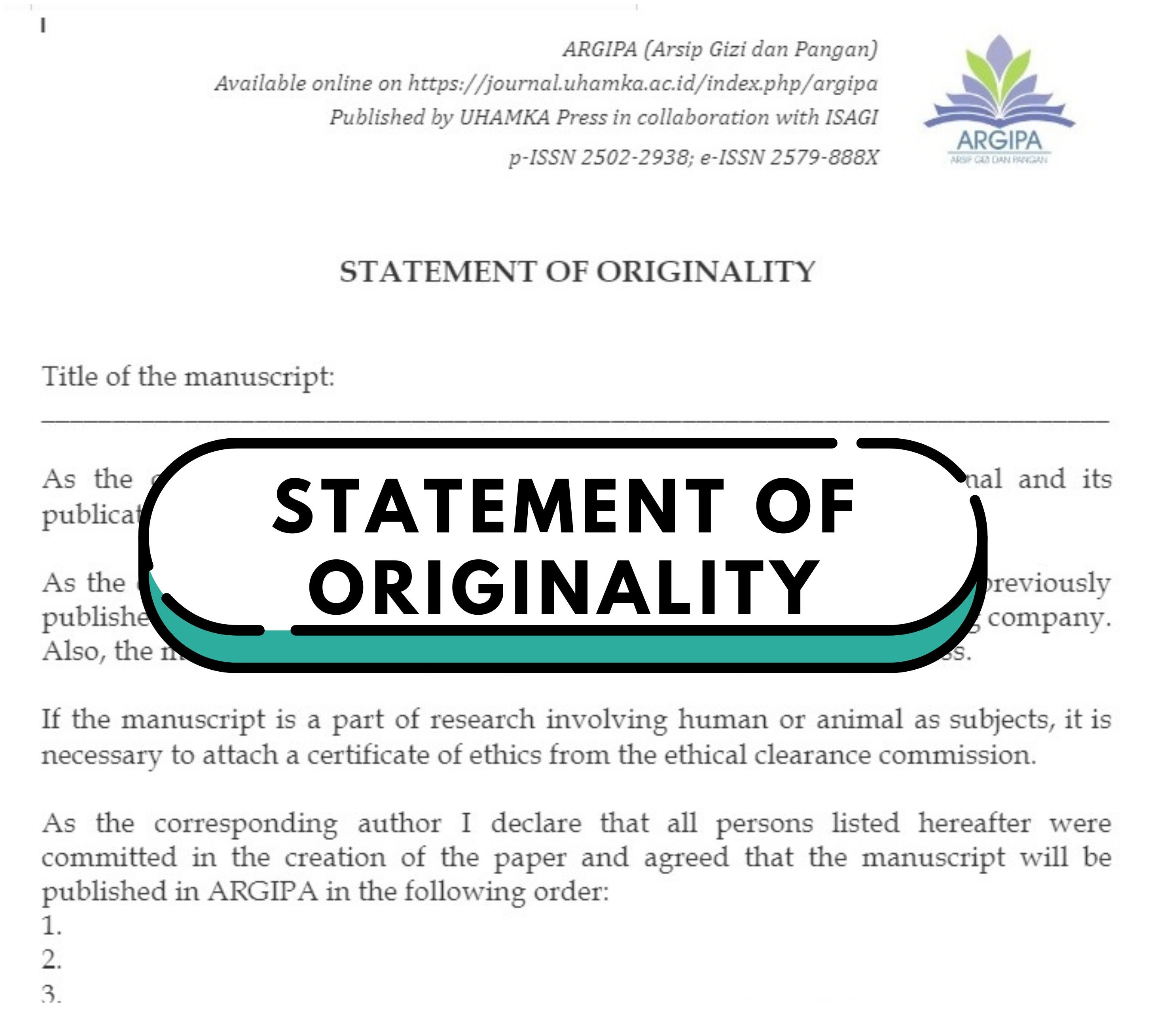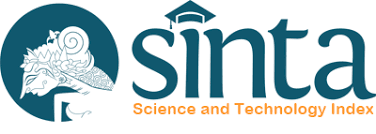Nutritional knowledge, sleep duration, and screen time are related to consumption of sugar-sweetened beverage on students of Junior High School 11 Jakarta
DOI:
https://doi.org/10.22236/argipa.v5i1.3878Abstract
Consumption of sugar-sweetened beverages in adolescents is still high, because of the sinful lifestyle, like not getting enough sleep and high screen time. The study aims to determine the relationship of nutritional knowledge, the role of parents, duration of sleep, and screen time with the level of consumption of sweetened-beverage. This study used a cross-sectional design with systematic random sampling. The number of subjects was on 165 students of class VII and VIII of Junior High School 11 Jakarta. Data nutritional knowledge, parental roles, sleep duration, and screen time were obtained from interviews using a questionnaire. The level of consumption of sweetened drinks was obtained from interviews using Semi-Quantitative Food Frequency Questionnaires (SQ-FFQ). Most subjects had a high level of consumption of sweet-beverages (60.6%), good nutritional knowledge (64.8%), the role of parents is classified at risk (50.9%), less duration of sleep (77%) and high screen time (72.1%). There was a relationship between nutritional knowledge, sleep duration, and screen time with the level of consumption of sugar-sweetened beverages.
Keywords: Nutritional Knowledge, Screen Time, Sleep Duration, Sugar-Sweetened Beverage
Downloads
References
Akhriani, M., Fadhilah, E. & Kurniasari, F. N. (2016). Hubungan konsumsi minuman berpemanis dengan kejadian kegemukan pada remaja di SMP Negeri 1 Bandung. Indonesian Journal of Human Nutrition, 3(1), 29–40.
Alhidayati, Nurhapipa, & Putri, R. (2017). Relationship of adolescents behavior to consumption of soft drinks in SMPN 5 Pekanbaru Year 2016. Photon: Jurnal Sain dan Kesehatan, 7(2), 53-60. https://doi.org/10.37859/jp.v7i02.503.
Asshidiqie, H. & Panunggal, B. (2013). Perbedaan jumlah asupan energi, lemak, serat, dan natrium berdasarkan kategori screen-time viewing pada anak obesitas usia 9-12 Tahun. Journal of Nutrition College, 2(3), 403-410.
Awwal, H., Hartanto, F. & Hendrianingtyas, M. (2015). Prevalensi gangguan tidur pada remaja usia 12-15 tahun: studi pada siswa SMPN 5 Semarang. Jurnal Media Medika Muda, 4(4), 873-880.
Barrio-Lopez, M. T., Martinez-Gonzalez, M. A., Fernandez-Montero, A., Beunza, J. J., Zazpe, I., & Bes-Rastrollo, M. (2013). Prospective study of changes in sugar-sweetened beverage consumption and the incidence of the metabolic syndrome and its components: the SUN cohort. The British Journal of Nutrition, 110(9), 1722–1731. https://doi.org/10.1017/S0007114513000822.
Brown, JE. (2016). Nutrition through The Life Cycle 4th Edition. Belmont: Thomson Wadsworth.
Cordrey, K., Keim, S. A., Milanaik, R., & Adesman, A. (2018). Adolescent consumption of sports drinks. Pediatrics, 141(6), e20172784. https://doi.org/10.1542/peds.2017-2784.
Fadhilah, F. H., Widjanarko, B., & Shaluhiyah, Z. (2018). Faktor-faktor yang berhubungan dengan perilaku makan pada anak gizi lebih di sekolah menengah pertama wilayah kerja Puskesmas Poncol Kota Semarang. Jurnal Kesehatan Masyarakat, 6(1), 734-744.
Fauzia, A. (2012). Hubungan Faktor Individu dan Faktor Lingkungan dengan Kebiasaan Konsumsi Minuman Bersoda pada Siswa SMP Islam PB Soedirman Jakarta Timur Tahun 2012. Skripsi. Jakarta: Fakultas Kesehatan Masyarakat, Universitas Indonesia.
Foerster, M., Henneke, A., Chetty-Mhlanga, S., & Röösli, M. (2019). Impact of adolescents' screen time and nocturnal mobile phone-related awakenings on sleep and general health symptoms: A prospective cohort study. International Journal of Environmental Research and Public Health, 16(3), 518.
Hendrayati, S. & Rauf, S. (2010). Pengetahuan gizi, pola makan, dan status gizi siswa SMP Negeri 4 Tompobulu Kabupaten Bantaeng. Media Gizi Pangan, 9(1), 33-40.
Kementerian Kesehatan RI. (2014). Buku Studi Diet Total: Survei Konsumsi Makanan Individu. Jakarta: Badan Penelitian dan Pengembangan Kesehatan.
Marine, D. & Adiningsih, S. (2015). Perbedaan pola konsumsi dan status gizi antara remaja dengan orang tua diabetes melitus (DM) dan non-DM. Journal Media Gizi Indonesia, 10(2), 179–183.
Martin-Calvo, N., Martínez-González, M. A., Bes-Rastrollo, M., Gea, A., Ochoa, M. C., Marti, A. (2014). Sugar-sweetened carbonated beverage consumption and childhood/adolescent obesity: a case-control study. Public Health Nutrition, 17(10), 2185–2193.
Mueller, N. T., Jacobs Jr, D. R., MacLehose, R. F., Demerath, E. W., Kelly, S. P., Dreyfus, J. G., & Pereira, M. A. (2015). Consumption of caffeinated and artificially sweetened soft drinks is associated with risk of early menarche. The American Journal of Clinical Nutrition, 102(3), 648–654.
Pabayo, R., Dias, J., Hemenway, D., & Molnar, BE. (2016). Sweetened beverage consumption is a risk factor for depressive symptoms among adolescents living in Boston, Massachusetts, USA. Public Health Nutrition, 19(17), 3062–3069. https://doi.org/10.1017/S1368980016001828.
Parinduri, M. S., & Safitri, D. E. (2018). Carbohydrate and protein intake associated with nutritional status of students in Syafana Islamic School Primary, South Tangerang Year 2017. ARGIPA (Arsip Gizi dan Pangan), 3(1), 48-58. https://doi.org/10.22236/argipa.v3i1.2447.
Prather, A. A., Leung, C. W., Adler, N. E., Ritchie, L., Laraia, B., & Epel, E. S. (2016). Short and sweet: associations between self-reported sleep duration and sugar-sweetened beverage consumption among adults in the United States. Sleep Health, 2(4), 272–276.
Ramadhaniah, R., Julia, M., & Huriyati, E. (2014). Durasi tidur, asupan energi, dan aktivitas fisik dengan kejadian obesitas pada tenaga kesehatan puskesmas. Jurnal Gizi Klinik Indonesia, 11(2), 85-96.
Safitri, D. E., & Sudiarti, T. (2015). Perbedaan durasi tidur malam pada orang dewasa obesitas dan non-obesitas: Meta-analisis studi cross-sectional 2005-2012. Penelitian Gizi dan Makanan (The Journal of Nutrition and Food Research), 38(2), 121-132.
Scully, M., Morley, B., Niven, P., Crawford, D., Pratt, I. S., & Wakefield, M. (2017). Factors associated with high consumption of soft drinks among Australian secondary-school students. Public Health Nutrition, 20(13), 2340–2348. https://doi.org/10.1017/S1368980017000118.
Subardjo, Puri, Y., Sudargo, T., & Julia, M. (2013). Paparan iklan televisi terhadap pemilihan makanan dan asupan energi pada anak. Jurnal Gizi Klinik Indonesia, 10(2), 101-110.
Tarabashkina, L., Quester, P., & Crouch, R. (2016). Food advertising, children's food choices and obesity: interplay of cognitive defences and product evaluation: an experimental study. International Journal of Obesity (2005), 40(4), 581–586. https://doi.org/10.1038/ijo.2015.234.
Utami, N., Purba, M. B., & Huriyati, E. (2018). Paparan screen time hubungannya dengan obesitas pada remaja SMP di Kota Yogyakarta. Jurnal Dunia Gizi, 1(2), 71-78.

















